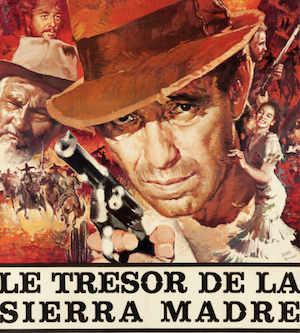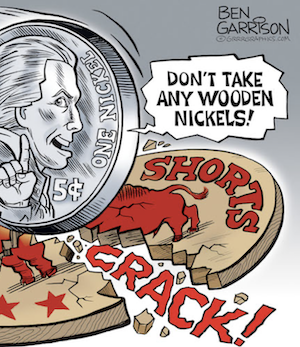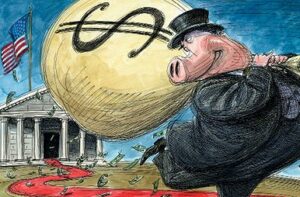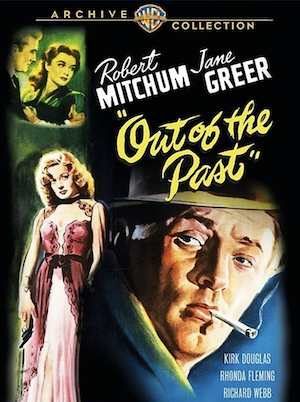 They have officially ruined breakfast. Once upon a time, breakfast was the least expensive meal of the day, but now everything has changed. Eggs, butter and coffee have all become extremely expensive, and there is no relief in sight in 2025. When I went to the grocery store on Friday, I spent about 45 dollars for just nine tubs of butter. I could hardly believe my eyes, but after doing some digging I discovered that five dollars for a pound of butter is very close to the national average at this stage.
They have officially ruined breakfast. Once upon a time, breakfast was the least expensive meal of the day, but now everything has changed. Eggs, butter and coffee have all become extremely expensive, and there is no relief in sight in 2025. When I went to the grocery store on Friday, I spent about 45 dollars for just nine tubs of butter. I could hardly believe my eyes, but after doing some digging I discovered that five dollars for a pound of butter is very close to the national average at this stage.
Of course in some areas it is even more expensive. During an exchange on MSNBC’s Morning Joe program, Joe Scarborough was astounded to learn that the price of butter has reached 7 dollars in some stores in his area…
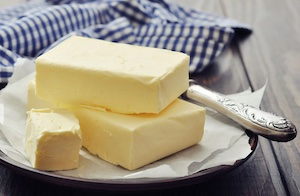 “It’s $7… I’m just saying it’s 7,” Brzezinski interrupted.
“It’s $7… I’m just saying it’s 7,” Brzezinski interrupted.
“Butter is $7… What, is it framed in gold?” Scarborough replied incredulously, with a look of shock on his face.
“It’s seven bucks…. it depends where you go,” Brzezinski stated somberly.
Europe is facing a similar crisis.
In fact, the price of butter in Europe jumped by an average of 19 percent during the 12 month period ending in October…
Across the 27-member states of the European Union, the price of butter rose 19% on average from October 2023 to October 2024.
That included a rise of 49% in Slovakia, and 40% in Germany and the Czech Republic, according to EU figures with reports indicating the cost has continued to rise.
But they keep telling us that inflation is under control.
Yeah, right.
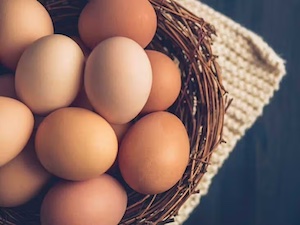 Egg prices have been rising even more rapidly.
Egg prices have been rising even more rapidly.
In some areas of California, a carton of 12 eggs will now cost you 9 dollars…
Egg prices in California have reached unprecedented levels, with some areas reporting costs as high as $9 per dozen. This surge is largely attributed to the ongoing impact of Highly Pathogenic Avian Influenza (HPAI), commonly known as bird flu, which has significantly disrupted egg supply across the United States.
The price escalation in California is particularly notable. While the national average for a dozen Grade A large eggs hovers around $3.20, in California, the average price for a carton of white cage-free eggs has hit $5.11. However, in certain regions, consumers are seeing prices nearly double that amount.
I vividly remember when you could buy a carton of 12 eggs for less than a dollar.
Sadly, those days are long gone and they aren’t coming back.
It is being reported that egg prices have risen 160 percent since 2019, and they are expected to go substantially higher in 2025 because of the bird flu.
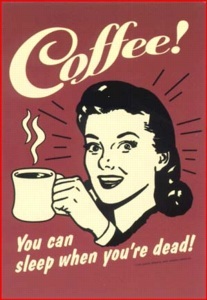 If you love coffee, you should be aware that coffee prices are also being projected to continue to rise at an exponential rate in 2025.
If you love coffee, you should be aware that coffee prices are also being projected to continue to rise at an exponential rate in 2025.
Can you imagine paying 8 dollars for a single cup of coffee? Well, those that live in Australia could be doing exactly that by the end of this calendar year…
Coffee lovers could soon not be able to justify buying their caffeine fix daily with experts warning single cup could cost from $8-$12 by the end of 2025.
A confluence of factors has pushed Arabica bean prices into the stratosphere.
If you can believe it, the price of a pound of Arabica beans jumped more than 80 percent in 2024…
The warning comes as the price of Arabica beans, the world’s most popular variety, continues to rise.
Buying a pound of the bean variety topped US $3.44 on December 10, having risen more than 80 per cent in 2024.
Chocolate prices are entering unprecedented territory as well.
In 2024, cocoa futures actually tripled in price…
Prices for chocolate’s main ingredient have almost tripled since the start of 2024 as faltering production in West Africa — the world’s biggest growing region — led to massive supply shortages, the publication wrote, citing exchange data.
In early January, cocoa futures traded at around $4,000 per tonne. In mid-December they peaked at $12,700 per tonne, according to data from Trading Economics.
As this price shift starts filtering down to the consumer level, a lot of us won’t be able to afford to eat as much chocolate as we once did.
In fact, we have already reached a point where chocolate is being referred to as a “luxury” item.
If you love beef, I have more bad news for you.
According to Zero Hedge, cattle futures just hit another new all-time record high…
Cattle futures in Chicago surged to fresh record highs on Friday, driven by severe winter weather forecasts for the Central Plains and Midwest, two key regions home to the nation’s cattle belt. Analysts warn that the harsh conditions could reduce herd sizes and impact carcass weights, further tightening the nation’s cattle supply.
“While cattle can tolerate cold weather, extreme cold forces them to expend more energy, directly impacting feed conversion rates and ultimately reducing carcass weights,” Daily Livestock Report wrote in a note on Friday, warning that cattle weights fell 3% during last year’s cold blast across the Lower 48.
Demand for beef remains very robust, but the size of the U.S. national cattle herd just keeps shrinking.
At this point, it is the smallest that it has been since 1961.
So beef prices will just keep escalating in 2025.
 You could try switching to chicken or turkey, but they are both becoming more expensive thanks to the bird flu.
You could try switching to chicken or turkey, but they are both becoming more expensive thanks to the bird flu.
The bottom line is that we are transitioning into an entirely new environment.
We were quite accustomed to living in a society that produced enormous quantities of extremely inexpensive food.
But now global food supplies are steadily getting tighter, and global food prices are steadily marching upwards.
Hunger is on the rise all over the world, and demand at food banks in the United States is higher than ever before.
Years in advance, I explained to my readers in excruciating detail where global food production trends would be taking us.
Sadly, it will not be possible for our leaders to reverse those trends.
Horrifying global food shortages are in our future, and I would suggest that you prepare accordingly.
Written by Michael Snyder for The Economic Collapse ~ January 5, 2025


